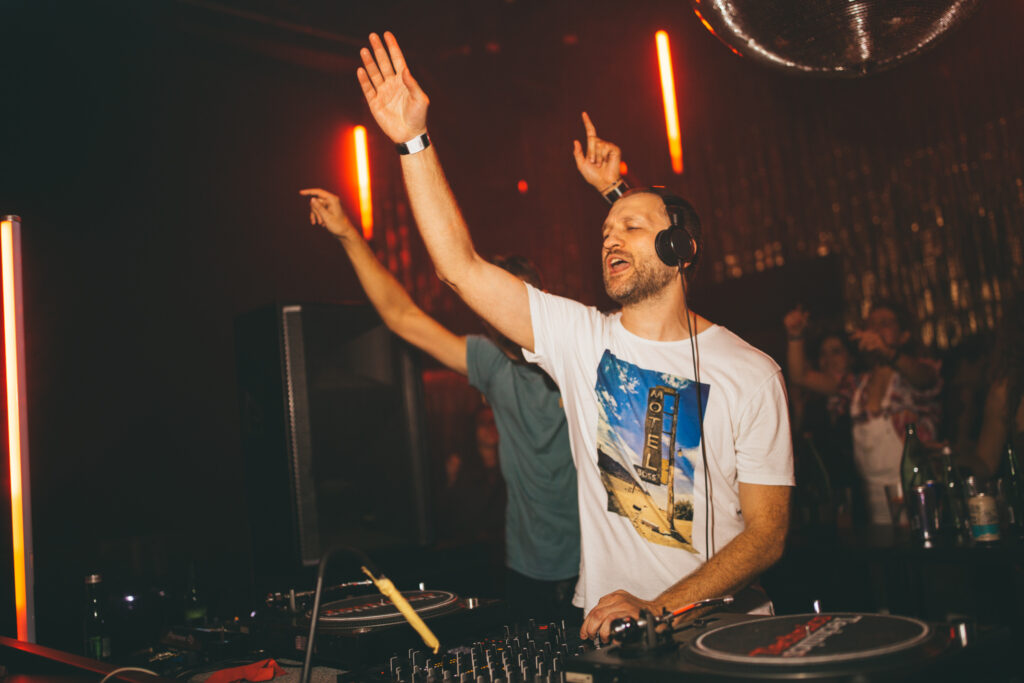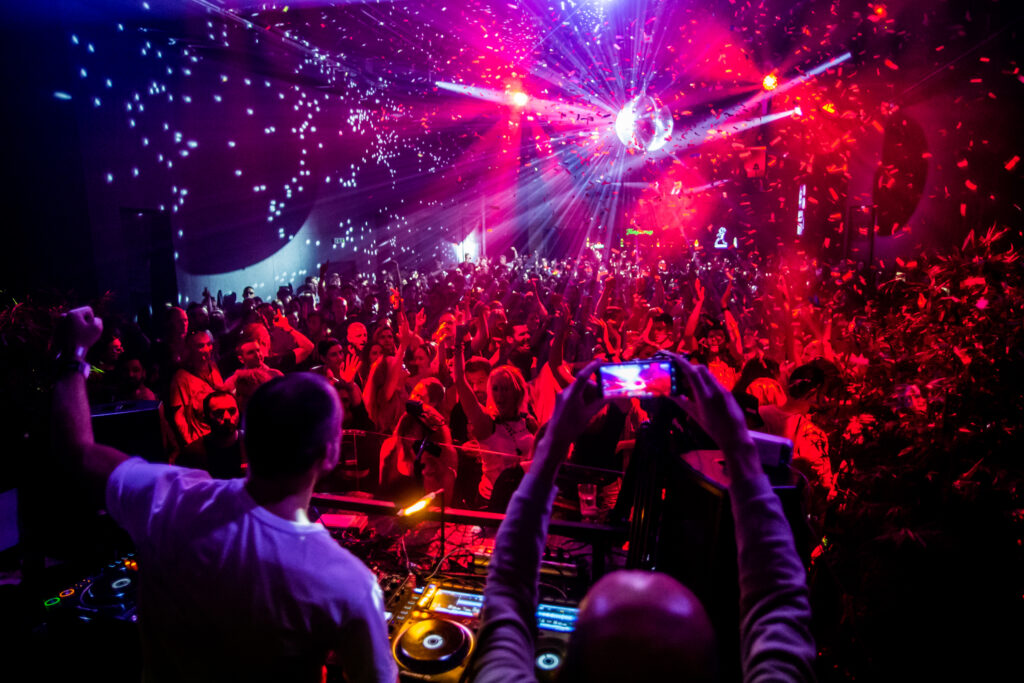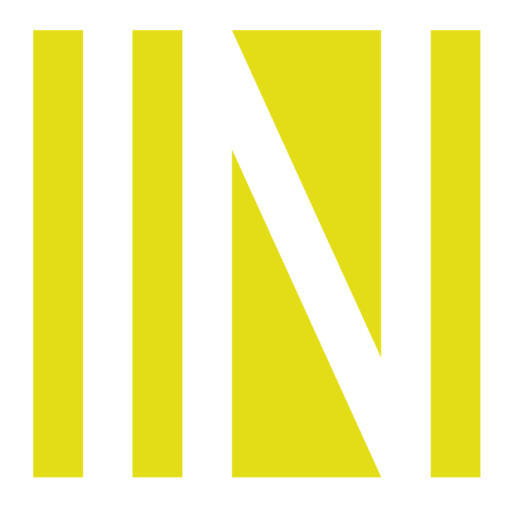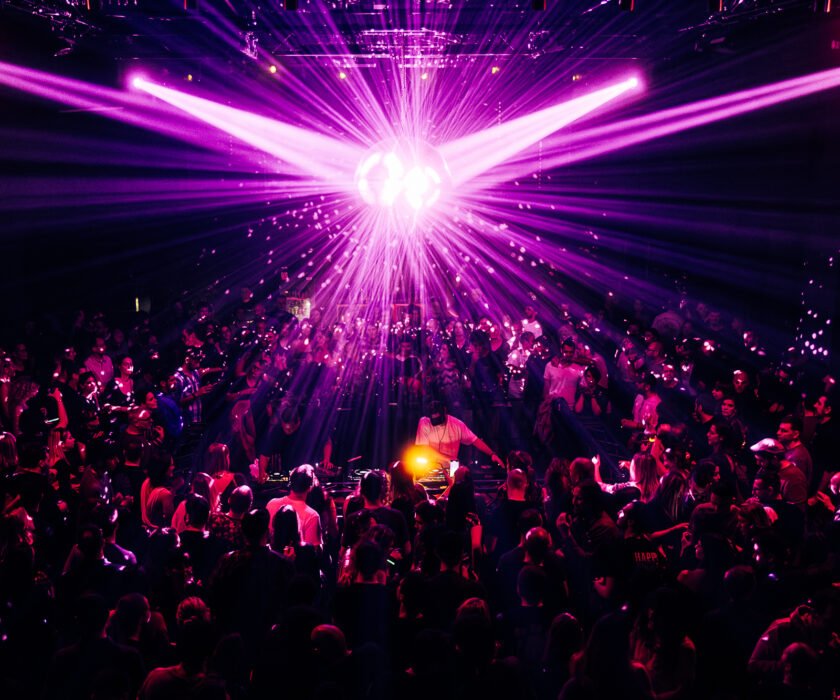DJ and electronic music producer Tom Bug is surely one of the most popular names on the Croatian house music scene. He has been spinning records in clubs all over Europe for over 20 years, but his local popularity started to grow when he formed his club night Dobar House, that soon became a renowned record label. In 2020 Elena Mikac, an aspiring new DJ, became an essential member of Dobar House crew and transformed the brand’s identity. After the pandemic, the brand exploded – they started filling up the dancefloors of Zagreb’s biggest clubs, organised festivals at the seaside and became local support residents for Defected Zagreb events.
The founder, Tom Bug, explained the evolution of Dobar House and shared his views on Croatian electronic music scene.

This year you celebrated 8 years of your event organisation and record label Dobar house? When you look back, what were the most important moments since you founded the brand?
There are several – the launch itself, as we quickly gained a following of the smaller house crowds. With a few ups and downs, we pulled through the first two years after which the brand started growing and gaining more and more recognition on the local scene. Following that, the label was established in 2018 (two years after the first party in 2016), and the first release from myself and Grooveline – Something’s Takin’ Over quickly gained popularity locally, and gradually over time the track got plays and support from the likes of Tensnake, Mambo Brothers, Black Legend and others. Then, our 2-day 5 year anniversary party in Masters which was super fun and crowded with a strong lineup of regional artists who released with the label, and which was sort of a step in the right direction in terms of growing the party. In 2022 we held our first 500+ event which was a complete success (and we haven’t stopped since), and one of the best parties we did to date with Prunk & M-High. Our 7-year anniversary with Kolter was also a thing of beauty. We are still to release a huge track on the label, but that time is coming. The label and our artists are growing in quality and numbers, and we are thankful to all of the producers who put their trust in us. The label is on a constant rise – slowly, but surely.
A year ago you collaborated with the globally known house label Defected and organised the first Defected Zagreb event. How did the collaboration happen? Was it the turning point for Dobar house?
The Defected Zagreb events are here thanks to The Garden Croatia initiative to bring Defected to the capital. We were contacted by The Garden to help promote the brand and event, and so far the events were really good! It sure was one of the big turning points for us, as this was where we were introduced to the world through their social media channels and been put on the map.
You’ve been on the scene for 22 years now and became one of the most influential house producers in Croatia. What was ‘the dream’ when you started? How do you define Croatian house music?
I hardly think of myself as an influential producer, there are still waaaaays to go for me in terms of making music, but I might have left some small mark in Croatia in terms of my DJ performances. The dream is still here. I used to hope someone would recognize my worth, and it did happen a few times, but only when I took things into my own hands is where good things started to happen for me. Going to competitions, starting Dobar House, etc. I don’t know how to define Croatian House music. I don’t think there’s such a thing. We did not create it, but we love it and are influenced by it, so I think we are just trying to put out good music out there.

A few years ago you established a sub-label of Dobar House called Dobar House Gruv on which you introduced deep tech and minimal house tracks. How come you expanded the sound identity of the brand?
In the beginning I wanted to release more of a classic house sound – not deep house, not tech house, just house with an occasional trip to deeper or soulful sound or a bit more peak time stuff, you know. Turns out most of the music we started getting in our inbox was good, but it was the “wrong” sound. I then tried to do like a sub brand within the main label. We added a different catalogue numbers and artwork to make the distinction. And this is where we release more techy or deeper tracks as well as more raw kinda productions. At one point, we figured it would be better to just start a sub-label, and in the meantime we actually managed to develop a sound. Getting there was pretty organic. So, Dobar House Gruv has a sound – but Dobar House not so much. Dobar House as the main label is still welcoming all sorts of house music – as long as it’s good and we dig it. We will not suddenly start releasing peaktime banging tech house tracks, but we will release tougher sounds as well as deep and soulful ones.
Recently we noticed the comeback of techno, hard groove and trance. How do you comment and adjust to the trends in electronic music as a DJ, producer and a record label owner?
Changes come and go. The crowd and generations change, the sound changes…like everything in life, evolution is happening all the time, even in the smallest of amounts. I noticed a little decrease in popularity in house music, but like I said, that will change again with a new sound – whatever that might be.

How many producers have released their tracks on Dobar House and Dobar Gruv labels? How do you find new artists?
I haven’t counted, but let’s say 50 at least, as we have more than 100 releases on both labels, and some of the producers have more releases than one. Sometimes they find us, sometimes we find them, ask them if they want to send demos to us. Sometimes they do, sometimes they don’t haha. Same with receiving the demos, sometimes we say yes, sometimes we say no.
What does it take to be an electronic music producer in Croatia? Is it challenging? Why?
I think the challenge lies within us. You can make music on your laptop with headphones, or you can make music in a super expensive studio. The challenge is to get off your ass and start working. Better equipment that costs money will help, but when you are fresh, mostly anything you make will sound shit however you do it. Takes time, practice and experience to achieve a workable sound. Takes much more to create a track that’s gonna catch someone’s ear. So I think the best thing to do is go gradually. Once you outgrow working on shit monitors, you save some money to buy better ones. You buy new effects or plugins, you invest in yourself little by little. Going all in from the get go makes no sense. No need to spend 10k+ euros to get a great computer and great monitors / equipment if you haven’t tried to do your first track yet. Croatia had some amazing producers in the earlier days, like in the 90s, and now, in recent years, we are seeing more and more new people coming in with some really good stuff like Soulfreq, Groove Masters and more.
What do you recommend to someone who is starting their career in electronic music?
Don’t let yourself get frustrated or disappointed too much with failures or by not being recognized. Keep working, keep trying. It’s not easy to “succeed” anywhere, it’s the same with electronic music. Make it, play it, enjoy it, do it for the love of it. Push yourself to achieve more, but don’t give yourself unrealistic goals. Dream big, as I think that’s VERY important to stay in the game, but go step by step. You suck at producing – work on it, and you’ll get better. You have no following or no gigs? Work on getting one. Ask around, fight for yourself. Don’t expect gigs will come just because you decided you are a DJ now. When someone says no to your music, or does not want to give you a chance to play in a bar or club, take it as a learning point, and not a bad thing. You will ALWAYS hear “no” more often then “yes”, even when you become an experienced DJ or producer. All of this sounds like a longer version of the cliche “never give up” haha. But in essence, it is true, cliche or not.
Dobar House crew has just closed their event season in Zagreb, but by the end of the month you can find them at Tisno, starting the summer at the iconic Barbarellas Discotheque.


